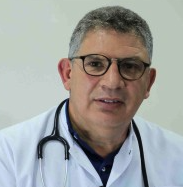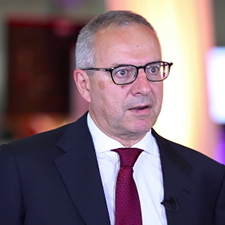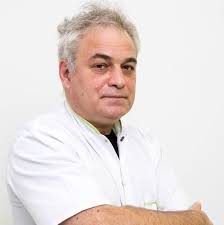e-SPACE Heart Failure 2023
Published: 25 October 2023
-
Views:
 3483
3483
-
Likes:
 7
7
-
Views:
 3483
3483
-
Likes:
 7
7
-
 Up Next
Up Next -
 41m 37s
41m 37s -
 1h 8m 32sPart 1 | Session 3 Plenary session 2 – GDMT in the clinical setting
1h 8m 32sPart 1 | Session 3 Plenary session 2 – GDMT in the clinical setting -
 51m 41sPart 1 | Session 4 Special Live Interactive Session – Management of ATTR-CM
51m 41sPart 1 | Session 4 Special Live Interactive Session – Management of ATTR-CM -
 44m 4s
44m 4s -
 57m 43sPart 1 | Session 6 Plenary session 3 – SGLT2i in clinical practice
57m 43sPart 1 | Session 6 Plenary session 3 – SGLT2i in clinical practice -
 40m 4s
40m 4s -
 1h 1m 49sPart 1 | Session 8 Plenary session 4 – Obesity and weight management in HF
1h 1m 49sPart 1 | Session 8 Plenary session 4 – Obesity and weight management in HF -
 50m 39s
50m 39s -
 56m 50sPart 1 | Session 10 Plenary session 5 – Worsening and acute heart failure
56m 50sPart 1 | Session 10 Plenary session 5 – Worsening and acute heart failure
-
 36m 3s
36m 3s -
 1h 1m 56sPart 2 | Session 2 Plenary session 6 – Iron deficiency: the totality of evidence
1h 1m 56sPart 2 | Session 2 Plenary session 6 – Iron deficiency: the totality of evidence -
 25m 15s
25m 15s -
 59m 4sPart 2 | Session 4 Plenary session 7 – Managing comorbidities in HF
59m 4sPart 2 | Session 4 Plenary session 7 – Managing comorbidities in HF -
 1h 46sPart 2 | Session 5 Plenary session 8 – Devices in HF: time to reassess their place?
1h 46sPart 2 | Session 5 Plenary session 8 – Devices in HF: time to reassess their place? -
 44m 24s
44m 24s -
 1h 1m 52sPart 2 | Session 7 Plenary session 9 – New technologies for HF management
1h 1m 52sPart 2 | Session 7 Plenary session 9 – New technologies for HF management -
 1h 2m 8sPart 2 | Session 8 Plenary session 10 – Special Populations
1h 2m 8sPart 2 | Session 8 Plenary session 10 – Special Populations
Overview
Translational Medicine Academy (TMA) in partnership with Radcliffe Cardiology were delighted to announce the return of e-SPACE Heart Failure 2023.
A thoughtfully curated programme supported the exploration of how leading experts are implementing the new heart failure guidelines into clinical practice and showed the latest information on patient profiling in heart failure for tailoring medical therapy.
This event once again brought together TMA’s mandate for the delivery of continuing professional development to healthcare professionals to achieve concordance with appropriate treatment plans, with Radcliffe Cardiology’s goal to deliver cardiovascular knowledge to best support cardiovascular communities transform theory into practice.

Learning Objectives
- Review the burden of heart failure with reduced ejection fraction (HFrEF) and heart failure with preserved ejection fraction (HFpEF) as one of the leading causes of disability and mortality worldwide
- Understand the latest guideline recommendations and discuss their applicability according to patients phenotypes
- Discuss the implementation in clinical practice of the four foundational therapies and additional drugs and devices to improve patient outcomes
- Develop a comprehensive understanding of best practices for the screening, diagnosis and management of the patient with heart failure and comorbidities
- Translate the findings of recent studies and guidelines into optimal patient management
Target Audience
- Heart Failure Specialists
- General Cardiologists
- General Practitioners (GPs)
- Nurses, Pharmacists, and other Allied Healthcare Professionals
More from this programme
Part 1
Day One
Part 2
Day Two
Faculty Biographies

Ahmed Bennis
Professor of Cardiology
Prof Ahmed Bennis is Professor of Cardiology at Ibn Rochd University Hospital, Casablanca, MA.
He is also the past President of Moroccan Society of Cardiology.

Frieder Braunschweig
Director of Cardiology
Prof Frieder Braunschweig is the Director of Cardiology at Karolinska University Hospital, Stockholm, SE and a Professor at Karolinska Institutet in Stockholm, SE.
His clinical focus areas include invasive electrophysiology, cardiac pacing, heart failure and sports cardiology.

Marco Metra
Professor
Marco Metra is Full Professor of Cardiology and Director of the Institute of Cardiology of the Civil Hospital and University of Brescia, Italy, and Editor-in-Chief of the European Journal of Heart Failure and Senior Consulting Editor of the European Heart Journal.
Prof Metra has been principal investigator and member of the Executive or Steering Committees of many trials in patients with heart failure. His research is focused on heart failure with, as main areas of interest, β-blocker therapy and, more recently, the assessment and treatment of the patients with acute heart failure.
He has co-chaired with Prof. Teerlink, San Francisco, CA, the phase IIB Pre-RELAX-AHF and the phase III RELAX-AHF randomized placebo controlled trials in patients with acute heart failure and is chairing the current RELAX-AHF-2 trial, which has as primary end-points the effects of serelaxin on the 180-days mortality and on in-hospital worsening heart…

Alicia Chan
Cardiologist
Dr Alicia Chan is a cardiologist at Western HeartCare, Henley Beach, AU.
She specialises in heart failure and implantable devices therapy and also has a keen interest in heart disease in women.

Ovidiu Chioncel
Professor of Cardiology, Head of ICCU
Dr Ovidiu Chioncel is Professor of Cardiology and Head of ICCU at the University of Medicine Carol Davila in Bucharest, Romania.
His clinical research interests include heart failure, cardiac imaging and emergency medicine.
Dr Chioncel has been involved in numerous clinical trials, and is Director of the Romanian Acute Heart Failure Syndrome registry (RO-AHFS), the National Registry of Acute Aortic Dissections (RENADA) and the National Coordinator of EORP/ESC-HF Registries.
Dr Ovdiu Chioncel is a Section Editor of Cardiac Failure Review.

Stefan Anker
Professor of Cardiology
Prof Stefan Anker is professor of (Tissue) Homeostasis in Cardiology & Metabolism at Charité Berlin, Germany, since June 2017. Prodigious researcher who has authored more than 1,000 articles. He has also won several prizes, including the 2018 Copernicus Prize of German DFG & Polish FNP. In October 2020, he was awarded a Doctor honoris causa of Medical University Wroclaw, Poland.
Prof Anker has been serving on the board of the Heart Failure Association (HFA) of the ESC since 2006 and was HFA President from 2012 to 2014. He currently chairs the HFA committee on regulatory affairs. He is founding Editor-in-Chief of the first open-access heart failure journal, ESC Heart Failure. Prof. Anker has served on several ESC Guideline task forces.
Prof Anker is the founding president of the International Society on Sarcopenia, Cachexia and Wasting Disorders (SCWD) and founding Editor-in-Chief of the Journal of Cachexia, Sarcopenia and…






Comments